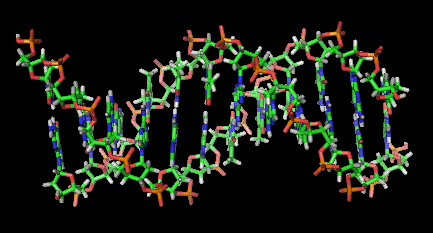A law which was passed on Thursday, July 2, 2015 by the National Assembly of Kuwait is expected to become effective later this year where all citizens, expatriates and visitors upon entering the country will be required to submit a specimen — either a sample of a few drops of blood or saliva placed on special cards — in order to have their deoxyribonucleic acid tested and stored in an integrated security database.
The law was passed in response to a suicide bombing which occurred at the Imam Ja’far as-Sadiq Mosque — which is one of the oldest mosques in Kuwait — during Friday prayers on June 26, 2015 where 27 people were killed and 227 people were injured. The Islamic State of Iraq and Syria — also known as ISIS — claimed responsibility for the terrorist attack. 15 suspects were found guilty.
DNA Testing to Be Required to Enter Kuwait
If you visit Kuwait once the new law in in effect — which will not happen until the Cabinet of Kuwait approves the draft submitted to it in accordance to recommendations made in the law known as 78/2015; and when that will occur is still unknown at this time — your specimen will be collected at a special center at Kuwait International Airport, where you will be advised on your rights and duties.
The first of its kind in the world, the law testing the deoxyribonucleic acid — or DNA — of each person is intended to be enforced strictly for security purposes and reasons in order to mitigate acts of crime and terrorism; and “does not include genealogical implications or affects personal freedoms and privacy”, according to this article written by Hanan Al-Saadoun for the Kuwait Times.
The government of Kuwait will coordinate with various airlines and foreign embassies in an attempt to clearly inform all visitors about the law and the possible consequences of rejecting its procedures— the specifics of which have not been revealed at this time.
Potential Privacy Issues?
The privacy of each and every citizen and resident — as well as visitors — will supposedly be protected under the law as highlighted in three articles of the law:
- Without contradiction with any stricter penalty stipulated by another law, individuals making job-related secrets public or revealing any DNA database information they might come across as part of job duties, will be punished by a maximum of three years in prison
- Individuals forging DNA documents or knowingly using fake ones will be punished by a maximum of seven years in prison and/or a maximum fine of KD 5,000
- Without contradiction with any stricter penalty stipulated by another law, individuals who damage the DNA database will be punished by a minimum of three and a maximum of 10 years in prison
Additionally, a “special work mechanism” has been established for laboratories and sample collection where it will be difficult for laboratory staff and other staff dealing with the samples to identify the sources of those samples, by only using special barcodes on samples and specimens.
The executive charter is very strict with staff members dealing with the samples in order to win the trust of citizens, residents, visitors and anyone who has access to the database.
The database will be used in case of natural disasters or major incidents which leave behind bodies that can only be identified through DNA tests, which will also be used to match DNA in paternity cases or as suspects in criminal cases; but the test will not be used to diagnose any disease or obtain medical information.
Summary
I do not like to be fingerprinted or endure a full body scan at airport security checkpoints, as I greatly value my privacy — so my initial thought is that I am opposed to this new law; but I am trying to keep an open mind, as the testing of deoxyribonucleic acid has proven to be accurate in terms of identification in medical and criminal cases over the years and can possibly help to mitigate terrorism.
Many nations — including the United States — have been building databases of deoxyribonucleic acid over the years; but none have passed a law to apply it as a requirement to enter their respective countries.
Despite repeated assurances of privacy, there is always a way to compromise an electronic system. In its basic form, we have seen breaches in frequent flier loyalty program accounts — such as what happened to me last year when I found that most of my points were missing from my account. The government of Kuwait might be able to assure that law-abiding staff will not have access to the database of information and enact penalties of those who run afoul of the law; but what about those who can breach the database from overseas? The government of Kuwait cannot guarantee 100 percent that such a breach will not happen.
One might argue that our lives are already entrenched in electronic databases; so what is one more database of personal information? Fingerprints are unique to each person; so is the collection of deoxyribonucleic acid from each person a form of overkill in terms of security?
Other questions include the speed of submitting specimens: will there be long lines after flights in the customs area of the airport to submit those specimens in addition to passport stamping, visas and other requirements to enter Kuwait? Could the new law one day render passports obsolete altogether? What measurements are in place to protect the database? What procedures will be followed if there is a breach in the database?
Would you enter a country which requires that you submit a sample of bodily fluids in order to have your deoxyribonucleic acid tested before you are permitted to enter the country?
Source: Zephyris at the English language Wikipedia [GFDL (http://www.gnu.org/copyleft/fdl.html) or CC-BY-SA-3.0 (http://creativecommons.org/licenses/by-sa/3.0/)], via Wikimedia Commons.
